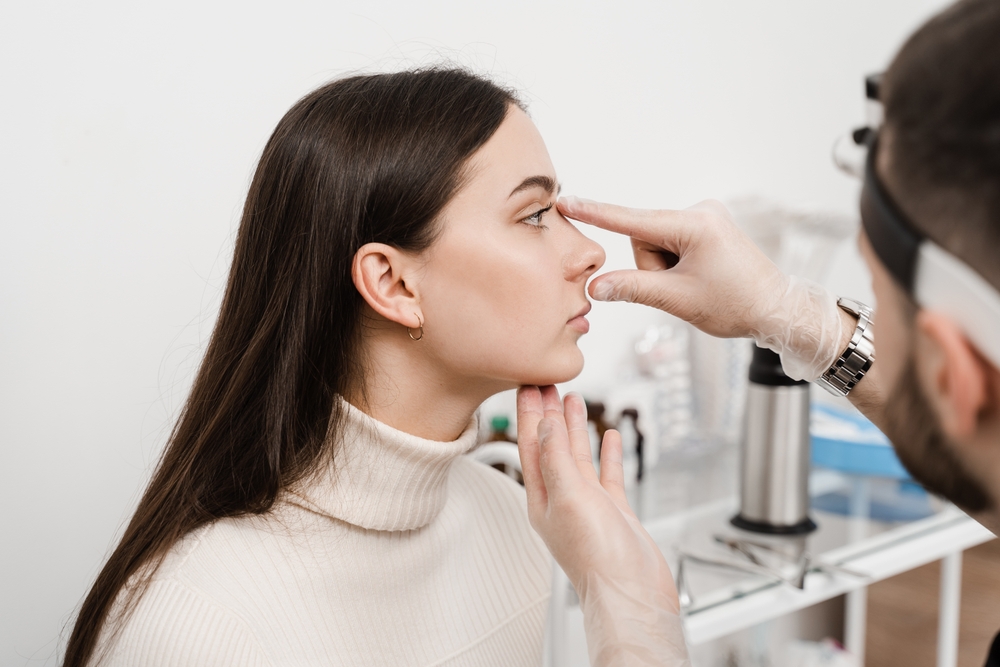Think of your nostrils as a highway. Air flows in and out, mucus travels, and these processes are vital for your health. The septum, a piece of tissue, separates the left and right nostrils, much like lanes on a highway. However, when the septum is deviated—meaning it is not straight—traffic jams of mucus can occur in your nasal passages. This disruption can lead to a host of problems, as your nose won’t function properly.
What is a deviated septum?
The septum is a narrow strip of tissue that divides your left and right nasal passages. Ideally, this tissue should be straight. However, in some cases, it can shift to one side, resulting in a condition known as a deviated septum. This deviation can be congenital or result from trauma.
A deviated septum can cause chronic issues, including frequent sinus infections, breathing difficulties, and sleep disturbances. If you suspect you have a deviated septum, consulting an ENT specialist or healthcare provider is advisable to explore your treatment options.
How do I know if I have a deviates septum?
In some cases, a deviated septum may not cause noticeable symptoms. However, many individuals experience significant signs, such as:
- Nasal Congestion: Persistent congestion in one or both nostrils can make breathing and smelling difficult. Typically, this congestion is worse on one side, depending on the deviation’s nature.
- Frequent Nosebleeds: A deviated septum can prevent moisture from reaching all areas of your nasal cavities, leading to dryness and frequent nosebleeds.
- Sinus Infections: While a single sinus infection doesn’t necessarily indicate a deviated septum, repeated infections might. A deviated septum can hinder proper drainage, leading to chronic sinus infections.
- Headaches: Disruption in the normal airflow and drainage due to a deviated septum can cause headaches, often located in the front of the head.
- Facial Pain: Increased pressure in the nasal cavities and sinuses due to a deviated septum can result in facial pain.
- Postnasal Drip: Blocked nasal passages can cause mucus to drip down the throat, a condition known as postnasal drip.
- Excess Snoring: Sleep disturbances, including snoring and sleep apnea, can result from a deviated septum.
- Noisy Breathing: During heavy physical activity or sleep, a deviated septum can cause noisy breathing.
- Reduced Sense of Smell: A deviated septum can alter airflow through your nose, diminishing your sense of smell.
The symptoms you experience will vary, and only a healthcare provider can diagnose a deviated septum.
How is a deviated septum diagnosed?
If you experience symptoms, it’s crucial to consult a healthcare provider. During your appointment, your provider will review your medical history, including symptom onset, snoring, and sinus infection frequency. They’ll also inquire about past nasal injuries or surgeries, which can increase the likelihood of a deviated septum.
A physical exam is typically performed, often involving specialized equipment to look up your nose. Your provider will inspect for obstructions or abnormal septum shapes. Diagnostic tests may include:
- Nasal Endoscopy: A thin, flexible tube with a camera is inserted into your nose for a detailed view.
- Imaging Studies: MRI or CT scans may be used to assess your nasal structures.
- Allergy Testing: Allergies can cause nasal inflammation, so tests may be done to rule out this possibility.
- These tests enable your ENT to diagnose a deviated septum or rule it out.
How do you fix a deviated septum?
Treatment options for a deviated septum include both non-surgical and surgical approaches:
Non-surgical approaches:
- Medication: Over-the-counter nasal decongestants or steroid sprays can relieve symptoms, though they don’t address the underlying cause.
- Nasal Strips: These can help during sleep or physical activities, especially in mild cases.
- Allergy Management: Managing allergies can reduce nasal congestion.
Surgical approaches:
- Septoplasty: This surgery straightens the septum, effectively treating the root cause of the symptoms.
- Rhinoplasty: Often combined with septoplasty, this procedure alters the nose’s shape for better function and aesthetics.
- Turbinate Reduction: Enlarged turbinates can exacerbate congestion; reducing their size can improve airflow and mucus flow.
Get the help you need
Unlike temporary road construction, a deviated septum won’t resolve on its own. If you think you might have a deviated septum, seeking professional advice from an ENT is crucial. Taking steps to treat the condition can significantly improve your quality of life.
Find an ENT specialist near you if you are experiencing the signs of a deviated septum.



